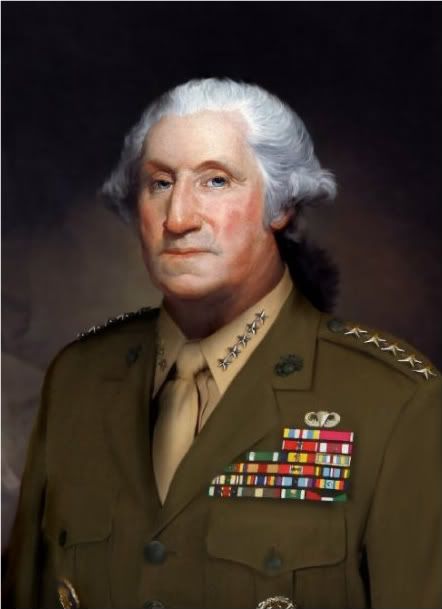It is important to add some context to this thing before you read it. This letter was basically Washington’s argument for paying his troops and raising a professional standing army. That militias were not dependable or effective against professional forces and the war is taking it’s toll on the current ‘volunteers’. His officers were resigning in droves, all because they were sick of war and they had families they needed to take care of. Or, they reached the end of their commitments and needed to get back to their homes.
The point is, Washington had to give an incentive to his troops for them to stick around and continue the fight. Patriotism alone was not sufficient in order to maintain the strength and vitality of an army during a long war. Plus, in order to defeat an attacking enemy, you need ‘organized’ violence, and you can’t get organized if no one wants to stick around and play. ‘Interest or reward’ is just one crucial factor of many, when it comes to maintaing an army during times of war.
The other interesting part about this letter was that it was also designed to address the problems of convincing congress that paying for a standing army was a good thing. At that time, early Americans were very skeptical of standing armies due to their experiences with Britain or in Europe, and how nations used their armies to rule over and control the people. The fear was that tyranny would come riding in on the backs of that standing army, so selling this concept was tricky.
So this is a General trying to convince everyone around him that if we want to win this war, we are going to have to pay up to hang on to the good guys and maintain an effective fighting force. It is a lesson as old as warfare itself.
Might I also add that George Washington’s Secret Navy, the privateers, were essential to this concept of providing ‘interest or reward’ to war participation. Privateers raiding enemy ships and taking their loot was a way to infuse money into the war time economy, ravage the enemy’s crucial logistics, keep a people tired of war focused on fighting for the US through industry, take advantage of innovations born from that industry(during and after the war), and use captured enemy munitions and weapons to outfit the struggling Continental Army. Even George himself invested in privateers. Stuff to ponder. –Matt
—————————————————————–
“….Men may speculate as they will—they may talk of patriotism—they may draw a few examples from ancient story of great achievements performed by it’s influence; but, whoever builds upon it, as a sufficient basis, for conducting a long and bloody war, will find themselves deceived in the end. We must take the passions of Men, as nature has given them, and those principles as a guide, which are generally the rule of action. I do not mean to exclude altogether the idea of patriotism. I know it exists, and I know it has done much in the present contest. But I will venture to assert, that a great and lasting War can never be supported on this principle alone—It must be aided by a prospect of interest or some reward. For a time it may, of itself, push men to action—to bear much—to encounter difficulties; but it will not endure unassisted by interest.”- From General George Washington’s letter to John Banister, April 21st 1778


